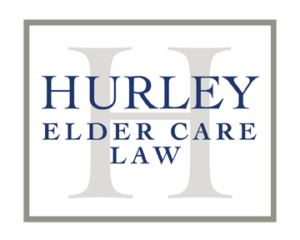Power of Attorney (POA)
Caring for an older adult with dementia or other serious illness brings on a whole new vocabulary and issues to learn about. Understanding guardianship and the legal rights of surrogate decision makers is usually at the top of the list. “What is the difference between POA and Guardianship?” We hear from stressed out…
Read MoreOne major component of a complete estate plan is a financial Power of Attorney. Although important, the financial Power of Attorney is often misunderstood. A financial Power of Attorney is a legal document that allows you to name someone to handle your finances — taxes, bills, bank accounts, real estate sales, etc. It can help…
Read MoreMost adults do not have a complete estate plan. We know—it’s expensive, time-consuming, stressful, and overall unpleasant to think about. Not planning for your potential incapacity and your death is even more expensive and time-consuming. If you die without a will or trust, you’ll lose control over who inherits your stuff and who…
Read MoreIn November of last year, the Washington Post ran an opinion piece by an ER doctor titled “Doctors are torturing dementia patients at the end of their life”. Read the article here The doctor’s experience and perspective are not unusual. As Jane Brody of the New York Times summarized “Advanced dementia, including Alzheimer’s disease, is the…
Read MoreLet’s make this the year you finally tackle some of those tasks that you’ve been putting off. At the top of your New Year’s resolution list should be your estate plan. Most adults put off estate planning for several reasons: 1) It seems overwhelming and confusing; 2) It seems terribly complicated and expensive; 3)…
Read MoreIt’s unbelievable, but 2019 is almost over. As we approach the new year, it’s time to start thinking about new year’s resolutions. This year it’s time to make estate planning a part of your new year’s resolutions. Like most people, you’ve probably been putting off your estate planning. It can seem too confusing, too expensive,…
Read MoreFor most aging adults, family members act as the health care and financial agents. Most of us have a spouse, adult child, sibling or other family member who is able and willing to be our agent(s). More and more frequently, however, we are hearing from elder orphans—or those who have no adult children, spouse…
Read MoreYour estate planning documents should be updated regularly. They are not meant for you to “set it and forget it.” We recommend that everyone follow the following rule of thumb for updating their advance directives: Whenever there is a new decade, death, diagnosis, divorce, decline, or change in domicile, it’s time to update your…
Read MoreAt least once a week we hear from a family member who has been told that her dad’s power of attorney has expired. In an effort to protect an account holder’s assets, many financial institutions will refuse to accept a power of attorney. They fear fraud and exploitation, so they will often create artificial…
Read MoreSubscribe to our blog and monthly newsletter.












